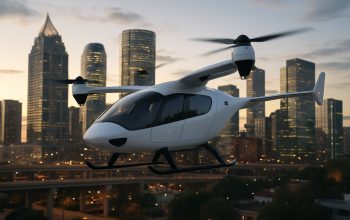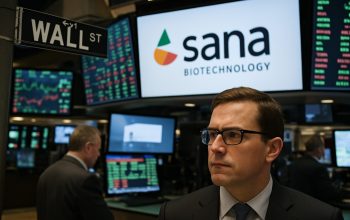- Marine biotechnology is revolutionizing sustainability and global industries by leveraging ocean resources for pharmaceuticals, agriculture, and renewable energy.
- The market, valued at USD 6.92 billion in 2022, is projected to reach USD 12.4 billion by 2033, driven by demand for bioactive compounds and novel drugs.
- Advances in genetic engineering and sustainable aquaculture are creating more efficient marine-based products.
- Marine microorganisms are being used for pharmaceutical and industrial purposes, contributing to sector growth.
- Investment in deep-sea exploration and renewable energy promises significant ecological solutions and market expansion to USD 17.3 billion by 2030.
- Artificial intelligence and machine learning are optimizing product development cycles.
- Industry leaders like Marinova and NEBBiotech drive innovation in response to global eco-conscious demand.
- Marine biotechnology aims for economic growth and a sustainable future.
Venture beneath the waves, where a silent revolution is reshaping industries and redefining sustainability. This is the realm of marine biotechnology, a burgeoning field poised to make a splash in the global economy by blending the mysterious depths of the ocean with cutting-edge science and technology.
Imagine a future where the ocean’s depths become a treasure trove for pharmaceuticals, agriculture, and renewable energy. Currently valued at USD 6.92 billion in 2022, the marine biotechnology market is set to nearly triple by 2033, projected to reach an impressive USD 12.4 billion. This surge is driven by the increasing demand for bioactive compounds, enzymes, and novel drugs derived from the ocean’s vast array of organisms.
Thanks to advances in genetic engineering, sustainable aquaculture practices are not only becoming more efficient but are also opening avenues for new marine-based products. These innovations are not confined to the realm of science; they reflect a fundamental shift in consumer behavior towards eco-consciousness and sustainability. People are more aware than ever of the environmental impact of their choices, and the marine biotech industry is at the forefront of meeting this demand with both ambition and adaptability.
A splash of innovation can be seen in how marine microorganisms are being harnessed for pharmaceutical and industrial uses, reinforcing the sector’s growth. Moreover, the exploration of marine-based renewable energy sources and bioremediation technologies is fueling the momentum, promising solutions to some of the planet’s most pressing ecological challenges.
Investment in deep-sea exploration is propelling this market into a promising future, potentially reaching a staggering USD 17.3 billion by 2030. Beyond pharmaceuticals, marine bio-products are set to revolutionize agriculture, food production, and environmental management. This growth is underpinned by the integration of artificial intelligence and machine learning, which optimize and accelerate product development cycles.
Leading the charge are key players like Marinova and NEBBiotech, which are spearheading innovations that address a global call for sustainable solutions. These companies, alongside their peers, are unlocking the ocean’s latent potential, providing tools and technologies that ensure the health of our planet.
The future of marine biotechnology holds boundless possibilities. With the right blend of science, innovation, and eco-conscious consumerism, this field not only promises economic growth but also a healthier future for generations to come. Embrace the change and dive into a world where the waves of innovation lead the charge toward a sustainable tomorrow.
Unlocking the Ocean’s Secrets: How Marine Biotechnology is Shaping Our Future
Introduction: Dive into the Future of Marine Biotechnology
The mysterious depths of the ocean are no longer just a symbol of the unknown. Marine biotechnology is transforming these deep waters into a hub of innovation and sustainability that holds economic, environmental, and pharmaceutical promise. As the field continues to burgeon, its implications for various industries—including pharmaceuticals, agriculture, and renewable energy—are becoming increasingly significant. Let’s explore the less explored facets of marine biotechnology, its future scope, and its real-world applications.
1. Real-World Use Cases of Marine Biotechnology
– Pharmaceuticals: Beyond the conventional use of marine resources in drug development, new marine-based compounds offer potential treatments for diseases, including cancer and neurodegenerative disorders. Marine sponges, algae, and microbes are being discovered with unique properties that offer new therapeutic potentials.
– Agriculture: The use of marine-derived fertilizers and pest control solutions is gaining traction. Algal extracts, rich in bioactive compounds, enhance plant growth and resilience while reducing reliance on chemical fertilizers.
– Bioremediation: Marine biotechnology offers solutions for cleaning oil spills and heavy metal contamination more efficiently. Specific bacteria and microorganisms found in the ocean are employed to break down pollutants, providing environmentally friendly remediation options.
2. Market Forecasts & Industry Trends
The marine biotechnology market, valued at USD 6.92 billion in 2022, is on a path to potentially reach USD 17.3 billion by 2030. This growth is driven by several factors, including technological advancements in genetic engineering, heightened consumer awareness of sustainable practices, and an increased emphasis on marine bioprospecting.
3. Controversies & Limitations
– Ethical Implications: The exploitation of marine resources raises ethical concerns. The balance between exploration and exploitation must be maintained to protect marine biodiversity.
– Regulatory Challenges: The nascent field faces regulatory hurdles as it navigates policies for sustainable use without harming marine ecosystems.
4. Emerging Technologies
– Artificial Intelligence (AI) and Machine Learning (ML): AI and ML are revolutionizing marine biotechnology by optimizing product development and discovery processes, predicting ecosystem behaviors, and offering precision in bioprospecting.
– Deep-Sea Exploration: Enhanced technologies are enabling deeper and more precise exploration, unearthing new marine organisms and compounds with potential commercial applications.
5. Pros & Cons Overview
Pros:
– Development of new pharmaceuticals and bioactive compounds.
– Eco-friendly agricultural practices.
– Renewable and sustainable energy solutions.
Cons:
– High costs of research and development.
– Potential negative impact on marine ecosystems if not properly managed.
6. Actionable Recommendations
– Industries should prioritize sustainable practices and invest in marine biotechnology R&D to harness these resources responsibly.
– Policymakers need to develop clearer regulations that balance the innovative potential of marine biotechnology with the need to protect marine environments.
– Adoption of AI and machine learning in this field can accelerate discoveries and improve sustainability outcomes.
Conclusion: Embrace the Ocean’s Promise
Marine biotechnology is a formidable force for innovation, sustainability, and economic growth. With ongoing research and development, we can unlock the ocean’s secrets to solve some of the world’s most pressing challenges. Aligning science with sustainability, the future holds vast possibilities for this groundbreaking field.
For more information on the changing landscape of science and technology, visit NATURE.



